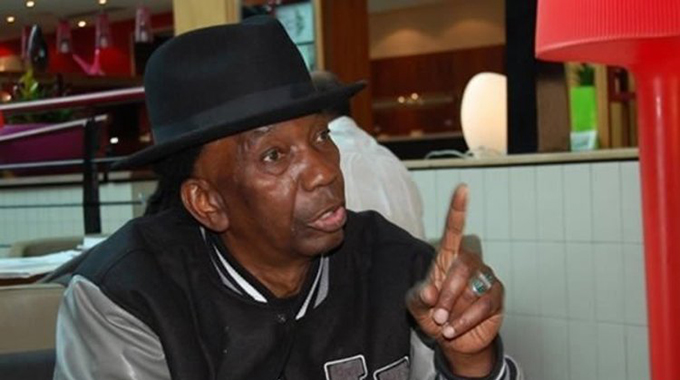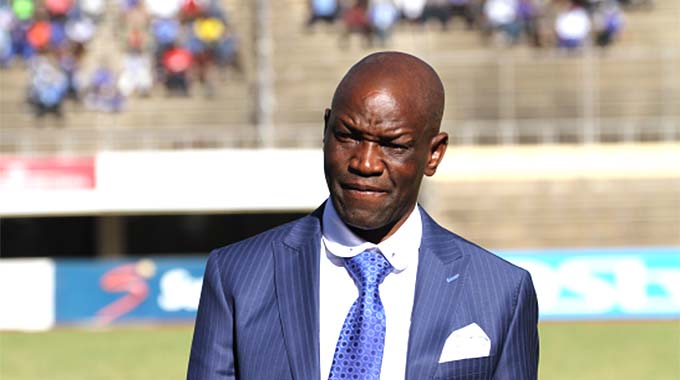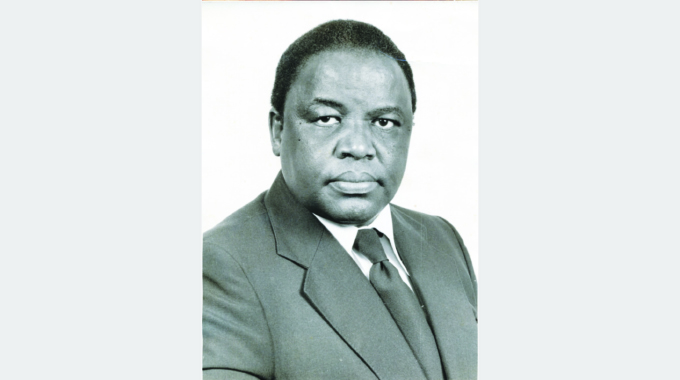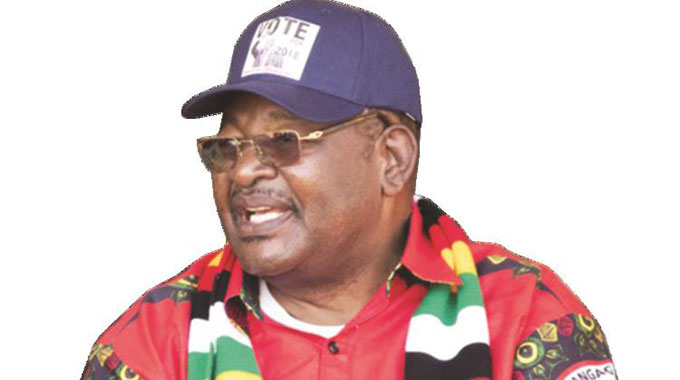Has the sun set on Thomas Mapfumo?

Isdore Guvamombe
“Great musical talent, three broken marriages, transition from village life to the ghetto, a miscalculated sojourn into the diaspora, failed investments, a broken youthful life in the rough turf of colonial Rhodesia, all carved the character of Thomas Mukanya Mapfumo.
This hodgepodge of names from Michael Munhumumwe to Thomas Makore, Thomas Tapfumaneyi and Thomas Chiwara, all refer to Thomas Mapfumo, the man known by his legion of Chimurenga music fans as ‘Mukanya’.
The Past
The twing-twang of the mbira instrument, fuses with a fluid tapestry of guitars and percussion, giving a gothic traditional sound that send hearts beating. The accompanying rolling traditional drum is a benevolent adjunct.
The crowd is swept off its feet and serenaded into the show as the night starts slipping away.
Before long, a dreadlocked ghostly figure explodes onto the stage in a staggering gait, sending the fans into a frenzy.
A deep booming voice, announces the arrival of the main act, a very tall man with characteristic dimples and a long face with arrow-headed temple and receding hair
The female backing vocals add the glamour and grandeur as a final marinate.
“Wakadiiko yahwee? Ndakuo-o-o-na!” intermittently comes the personalised greetings in affable Korekore dialect.
That was then, the genius in Zimbabwe’s Chimurenga music Thomas Tafirenyika Mapfumo, who earned himself a buffet of sobriquets.
His legion of fans the world over named him Mukanya (the baboon), whose staggering gait, he imitates in his half-trance stance when singing.
The sobriquet Mukanya has stuck with him more than any other.
Some named him, ‘The Lion of Zimbabwe’, after his naturally deep voice and dreadlocks that look like the mane of a lion. In the United States they call him Hurricane Hugo, after that storm that brought down buildings and left many people stranded.
The nickname came after the way he arrived for his tours which left many fans trailing for more.
Other fans called him ‘Gandanga’ (rebel), ‘Tafirenyika’, ‘Muchadura’ or simply ‘Thomas’.
There is no doubt that Mapfumo was an iconic figure of the liberation struggle through his music where he moved with the national liberation mantra.
Although after doing time in jail for his music in Rhodesia, he traded his song ‘Bhutsu Mutandarika,’ for freedom.
At his peak in 1999 he had an Honorary Masters’ degree bestowed upon him by the University of Zimbabwe.
In 2000 he was named the National Arts Award for Zimbabwe’s Person of the Century while in 2001, Ohio University at Athens, gave him an Honorary Doctorate degree in music.
That is one side of Thomas Mapfumo.
There is a second side of him and probably, a third or fourth.
Maybe endless sides.
Fame and the scullery of sobriquets seem to have gotten into his head and clouded his thinking.
Now he is extremely arrogant, combative and confrontational. Reckless with words.
The rebel who has lost his cause.
The rant!
Mapfumo last released an album in 2016 and recently announced he would embark on his last world tour and retire and probably remain a studio musician.
The sun is setting on his career. It has been long.
So, when you interact with Mukanya, it really depends on which one of his many sides appears.
Thomas Mapfumo the politician is a horrible person, a rebel who has lost the cause and makes disjointed and uninformed political statements.
The current Mukanya is highly excitable with things that are anti-establishment, maybe because of his proximity to the Americans, who for two decades have been trying to dismantle Zanu PF’s rule. Mapfumo stays in America since 2000.
Great musical talent, three broken marriages, transition from village life to the ghetto, a miscalculated sojourn into the diaspora, failed investments, a broken youthful life in the rough turf of colonial Rhodesia, all carved the character of Thomas Mukanya Mapfumo.
The idyll is that those with cotton tuft hair on their heads and little everywhere else hidden, did not grey for nothing, but through years of wisdom, yet for Mapfumo, the cotton tuft hair seems to have been mere decorum.
But, what with a world where musicians sing for their supper?
What with a world where selling out one’s country is more fashionable than defending it on principle?
Mapfumo first showed signs of being eccentric and obsessed with America when he released the song ‘Big in America’ on his album, ‘Manhungetunge’.
In the song, Mapfumo says everything was big in America, music, people, roads, money and, everything.
Poor Thomas!
Broken Youth
His national identity documents name him as Thomas Chikawa but, again, that is not his biological surname.
Who is Chiwara?
Who is Tapfumaneyi?
Who is Mapfumo?
Who is Munhumumwe?
Who is Makore?
How did Mukanya get involved with all these identities?
In an interview with The Herald a few years ago that Wednesday night at his aunt’s house in Waterfalls, Mukanya revealed many secrets of his life.
Who is Mapfumo’s real father?
Mukanya was born on July 2, 1945, in Marondera to Janet Chinhamo of Chihota and Tapfumaneyi Makore of Mupinyuri village in Guruve. However, the two did not stay together and Janet went on to get married to John Kashesha Mapfumo.
Makore relocated to a farm near Beatrice where he got a job as a tractor driver.
“I lived with my grandparents from my mother’s side for some years of my childhood in Chihota. I did not know my father. My mother got married to Mapfumo, but I was then known as Michael Munhumumwe. I was using my mother’s surname,” said Mukanya.
He, interestingly, noted that Munhumumwe was not his mother’s real father.
Like him, she had grown up with a stepfather, but he had to inherit his mother’s adopted surname Munhumumwe, as the stepfather who had taken care of his mother.
When it was time to get a national identity card, Mukanya had to change his name.
His uncle (maternal grandmother’s brother) took him to Marondera to get the document.
“I went to the district office with my uncle Chiwara. He was my grandmother’s brother. He used his name to facilitate the processing of my ID. That is how I became Thomas Chiwara. I have not changed the name since then. It is the name that is in national records,” said Mukanya.
Mukanya lived with his stepfather Mapfumo and his mother and most people knew him as Thomas Mapfumo. It was the name that became popular in the neighbourhood and among relatives. He had to use that name when he started music in the early 1970s. However, at the age of 17 Mukanya decided to look for his biological father.
“I enquired about his whereabouts around farms in the Beatrice area. One day I made a journey to the farm with my friend from the band Cosmic Four Dots. That was the group I worked with that time. We went to the farm on bicycles. I used my mother’s bicycle for that trip.
“We found his wife at home and she told us he would come for lunch. We waited for him and he arrived, as expected, driving the farm tractor. I introduced myself and he was so touched. He actually cried.”
From that day, Mukanya kept in touch with his father and visited him regularly until his death.
“I was based in Mhangura when he died. I only got information about his death some days after his burial. He was buried at his rural home in Guruve. I did not immediately visit the rural area to see my father’s grave.
“However, unfortunate things began happening in my life and I had to go for traditional consultations. I was told that I was supposed to go to my father’s rural home and unite with my relatives.”
Since then, he has kept in touch with his relatives in Guruve and visits them every time he comes home from his United States base.
To honour his father, he has given his son the name Tapfumaneyi.
He has also made his father’s totem, Mukanya, a moniker that goes with his music.
Mukanya is full of praise for his stepfather. He says he is happy to be known as Thomas Mapfumo because the name honours a man who took care of him when his real father abandoned him.
“My stepfather Mapfumo was a man with serious direction in life. He feared God and made sure that we lived a Christian life. Although I now follow the African traditional religion, I have a way of revering God that I learnt from VaMapfumo,” said Mukanya.
He said his mother also became strict in Christianity and their upbringing was blessed.
“My mother and my stepfather clicked well.
As children, we were required to religiously attend Sunday school. It was the day we would drink tea after church. Because no one wanted to miss tea, it became inspiration to go to Sunday school and the teachings helped us as we grew up.”
Mukanya’s wives and children
As the music life made him popular in the streets of Mbare where he lived and pursued his art, the Chimurenga musician decided to get married. He met a girl of Malawian origin who was called Emily. They stayed together for some time and were blessed with a daughter Charity.
After a few years they broke up and Charity went with her mother.
“Charity and her mother are both late, but my daughter left children and grandchildren that live in the country. My grandchildren now have their families and I am now a great grandfather. They visit me when I come home.”
After separating with Emily, Mukanya got a second wife named Elizabeth. She lived in Epworth before their marriage.
Elizabeth had two daughters with the musician — Janet and Charmaine before the marriage also collapsed.
“We had two daughters that are now based in the United Kingdom. Their mother recently returned from England. She had gone to see them. She is based here. Our daughters are doing well. Janet has a white husband and she is a designer. Charmaine works in a bank and she is not yet married.
When Mukanya’s marriage to Elizabeth ended, he married Vena. Vena grew up in Bulawayo, but she is originally from Mutare. She gave Mukanya his first and only son. They named him Tapfumaneyi after his grandfather (the musician’s biological father).
After Tapfumaneyi came two daughters Chiedza and Matinyaya. Mukanya moved with his whole family to the United States but recently had trouble with Vena, again.
Tapfumaneyi followed his father’s footsteps in music, but chose to pursue hip-hop because of American influence.
He also runs a car sales company. He is married to an Afro-American woman and they have two kids.
Chiedza graduated with a degree in accounting from University of Oregon and she works for a big company in the US.
She is married to a Nigerian.
They do not have children yet.
The last born, Matinyaya studied medicine. Mapfumo lost properties back home.
He has no house or business property in Harare.
The Herald on Saturday Lifestyle has it on record, Mukanya had about four houses in Harare that were sold due to marital misunderstandings and miscalculations by his former management.
However, Mukanya was only prepared to talk about a house he owned in Mt Pleasant.
“I bought the house for about $9 million (Zim dollars) in the late 90s. When we left for the United States, we assigned someone to look after it.
‘‘However, when we realised that he was not taking good care of it, we decided to sell the house and invest in a new business,” he said.
He was later to buy a plot in Domboshava where he has built a small homestead.
Mukanya managed to negotiate for another piece of land in Domboshava where he wants to build and arts centre but time is no longer on his side.
It could be a trite but true observation that Mukanya’s latest lyrical content, his fiery temper, music artistry and anger was all carved from this broken past.
Given his history, one would forgive him and feel that it was really a struggle to get to where he is today.
Is the sun indeed setting on him?
Time is a great teacher.











Comments